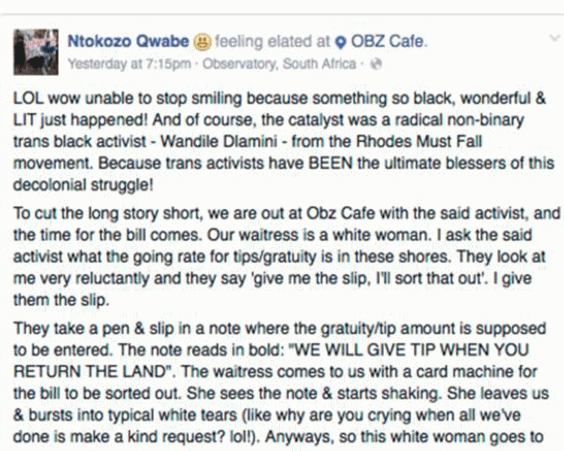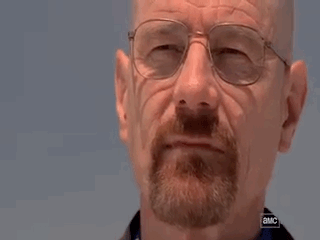I'm consciously not posting on the Coli as much as before, and I'm especially not posting in as many 'race' threads as before, but nevertheless I thought you might want to hear about the Rhodes Must Fall campaign which started in South Africa and eventually found its way to Oxford University, Berkeley University and elsewhere:
‘Take it down!’: Rhodes Must Fall campaign marches through Oxford
‘Take it down!’: Rhodes Must Fall campaign marches through Oxford
In the honeyed-stone square behind Oriel College, a line of school students snaked over the cobbles, listening to an animated tour of Oxford’s heritage. But assembled on the other side of Oriel Square, more than 100 Oxford University students and supporters had gathered for a different tour: a radical retelling of the institution’s problematic colonial heritage, organised by the Rhodes Must Fall campaigners.
Wednesday’s demonstration, a “mass march for decolonisation”, was part of the continuing campaign for the removal of Oriel College’s statue of Cecil Rhodes, the Victorian imperialist who supported apartheid-style measures in southern Africa.
At midday, students gathered for a lively alternative walking tour of Oxford, to mark one year since the Rhodes Must Fall campaign began – originally in protest at a statue at the University of Cape Town and spreading to universities across the globe, including Oxford, Cambridge and Harvard.
“You see the bus tours all the time around Oxford showing them the history of the university and the town, uncritically and unchallenged,” said Kholood Khair, a student of African studies. “So we thought, why not have a different walking tour, showing some of the real roots of the names of the places and the funding and where it came from?”
Khair said she was angry at Oriel’s decision, announced last month, to keep the statue, despite having previously agreed to a longer consultation process.
The college has confirmed it had been warned of the possibility that it would lose about £100m in gifts should the statue be taken down but has insisted financial implications were not the primary motive. “We are hearing that wealthy alumni are more important, and have a veto over the views of students, faculty and staff,” Khair said. “Put it simply: Oriel has sold out. Student welfare is not, and never will be for sale.”
Oxford student Ntokozo Qwabe, a South African-born Rhodes scholar who has been at the forefront of the campaign, said the day was about a bigger picture than the Rhodes statue. “What does it mean to study at a university? Who controls what is taught? Who controls how the space is configured?” he said. “Oxford purports to be one of the best institutions in the world. Is it? Or is it only for a specific thing? What is really going on with donor interference in the academic project?
“Academic inquiry gets undermined when we see that a set of people, just by being very wealthy, get to control this kind of decision. One of our main pillars is about representation of black and minority ethnic people in the curriculum.
“It’s not a coincidence that the people holding on to the old guard are mainly white and male. Here, a lot of students just are not aware that this is actually a problem. That’s the first thing to tackle.”
At the head of the crowd was Athi-Nangamso Esther Nkopo, a master’s student from South Africa, who led the students in call-and-response chants of “Amandla ngawethu” meaning “the power is ours”, a rallying cry from anti-apartheid resistance.
From Oriel Square, the hundred-strong crowd walked down the high street, as an open-top tourist bus crawled on the road behind them. As the march passed the statue of Rhodes, shouts grew louder, with several students waving their fists at the stone, calling “Rhodes must fall, take it down!”
Students and supporters marched through the Radcliffe Camera and to the gates of All Souls College, standing at the entrance to the Codrington library, an unobtrusive wooden door with a sign saying the facility was closed to external visitors.
Under falling pink blossom from the trees, students held up a sheet with the painted words “All white souls, no black minds”. The campaigners have called on the college to rename the library, which is named after Barbadian plantation owner Christopher Codrington, and establish a scholarship for African-Caribbean students.
The tour guide for this section of the march was Jordan Rose, a physics undergraduate at Magdalen College. “Codrington was a notorious and infamous slave owner, for whom men, women and children worked in the blazing sun on his plantation. Yet in the history we are taught, we hear traders and explorers stumbled upon discoveries like sugar, not how they trampled on black bodies to make white men rich,” he said.
Rose said he felt particularly angry at the comments of Lord Patten, the chancellor of the university, who said in a BBC interview that students who did not like the Rhodes statue should consider studying elsewhere.
The mention of Patten’s name drew loud booing from the assembled students. “He has the audacity to tell me, as a direct descendant of African-Caribbeans, that I should go elsewhere,” Rose said. “I was the top student in my class. I didn’t work so hard to be told to go somewhere else, just because I want to challenge and decolonise the university.”
Michelle Codrington, a descendant of one of the slave families who had worked on Codrington’s plantation and now lives in Oxford, sent a message to the campaigners. “My ancestors carry the name because they had their identity torn from them,” she said, in a written statement read out by one of the campaigners.
As the crowd travelled towards Rhodes House, past the Bodleian library, students hung messages of support painted on bedsheets out of the windows of Wadham College, and dangled from the Bridge of Sighs on New College Lane.
At Rhodes House, which administers the prestigious scholarships bequeathed by the Victorian colonialists, scholars who had benefited from the programme stood up to speak against his legacy. Student guides pointed to the bronze bird which stands on the top of the dome of the grand building, a sculpture itself taken from Zimbabwe. Ndjodi Ndeunyema, a Rhodes scholar from Namibia studying law, said: “The scholarship used to be known as the colonial scholarship. It should be known as the decolonial scholarship.
“The scholarship I have is the only Rhodes scholarship available to students from five different African countries, in the area Rhodes made his wealth, but there are 30 for the US. Five more Chinese scholarships have been announced.
“The composition of scholarships should be reflective of the legacy of Rhodes, for how he made his money. We demand that the scholarship address this distribution.”
Rhodes scholar Rachel Harmon, originally from the US, said the scholarship trust could not remain neutral in the debate. “We are here to disrupt the silence, because silence is not neutral, inaction is not neutral,” she said. “We’re asking them to please, for once, be part of the solution.”
As the students made their way through the centre of town to the central administrative building for the university, cars and vans appeared to be honking in solidarity, with only occasional critical remarks from passersby, including one red-cheeked man in a blue jacket who shouted “Cecil forever!” at the marchers.
Though rain and cold winds meant the turnout for the march might have been smaller than organisers had hoped for, Andre Dallas, a 20-year-old economics and management student at St Edmund Hall, said support was growing in the student body, and the campaigners refused to take Oriel’s position as a knockback. “We don’t see it like that because we don’t see it as a legitimate decision,” he said. “I feel like it has galvanised more people than before, because it show exactly who has control over what decisions are taken.
“Once we see how they respond to these new demands, we will take further steps. We are not ruling out anything: we are prepared to take any non-violent means to fight this.”
Princess Ashilokun, a Magdalen College student originally from Nigeria, said making a noise was already making a difference, even if Rhodes had not yet fallen. “Just type Rhodes into your Google search bar and you can see how we created history.”
An Oxford University spokesperson said: “Modern Oxford is a welcoming, tolerant and diverse community. We are working with black and minority ethnic students on many initiatives towards greater inclusion and representation.
“For example, we have introduced a summer conference to encourage more black and minority ethnic applicants from state schools, jointly led by students in the university’s African-Caribbean Society. We are also working in consultation with minority ethnic students on curriculum change, supporting this process with a series of high-profile public lectures on cultural change in higher education. These, and many others, are exciting developments and we would very much like Rhodes Must Fall to be involved.
“We hope they will accept our standing invitation to meet with senior staff and help shape the plans for an ever-more inclusive university.”
Last edited:





